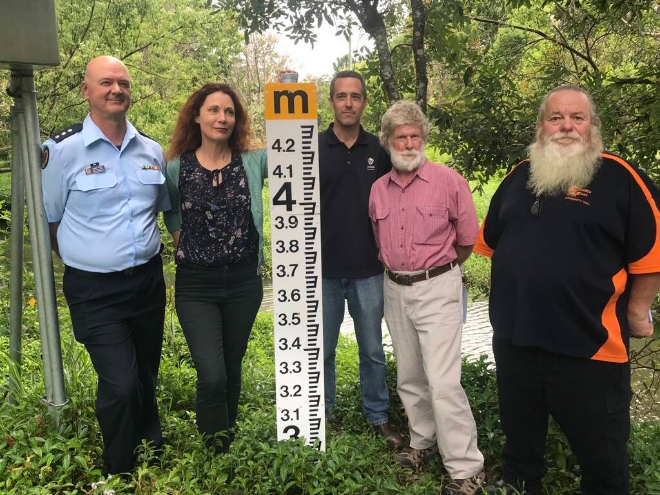Residents of Burringbar, Mooball and Crabbes Creek in the Tweed area are urged to register to receive flash flood alerts via SMS, email and recorded voice calls (landline) for free, ahead of the coming wet season.
Tweed Shire Council, with assistance from the NSW Department of Planning and Environment, NSW State Emergency Service (SES) and other government agencies, is launching a new automated flash flood alert system for the villages, following a successful trial last summer.
Council engineer – flooding and stormwater Leon McLean said previous events and council’s flood risk management studies have shown these areas are subject to flash flooding with little to no warning.
“The small Burringbar Creek and Crabbes Creek catchment areas are not covered by the Bureau of Meteorology’s (BOM) flood warnings, as the time between rainfall and flooding is too short,” Mr McLean said.
“The new Burringbar and Crabbes Creeks flash flood alert service is an automated system that will provide residents with advanced notice of approaching floods.
“The new early warning system was developed following extensive consultation with local residents and lead agencies and we are grateful for everyone’s input on this critical service.”
The system has two main components: flood forecasting and alert distribution.
The flood forecasting system involves a cloud-based computer system, running continuously, that accepts data from local rain and stream gauges and combines this with various BOM prediction products to forecast flooding in the near future.
Tweed Mayor Chris Cherry thanked the community for their participation in the project and said the forecasting system would be monitored at all times by council’s alerting partner, Early Warning Network.
“Thank you to the residents who participated in our community consultation. You told us what your biggest flood concerns were, what flood impacts you need to know about in advance, how much warning time you need to prepare your home and evacuate, how you would like to receive alerts and what level of flooding you consider to be minor, moderate or major,” Cr Cherry said.
“The community’s input was critical to designing a flash flood alert system that reflects their specific needs.”

















